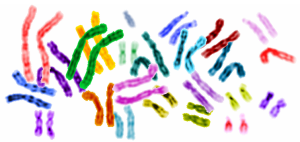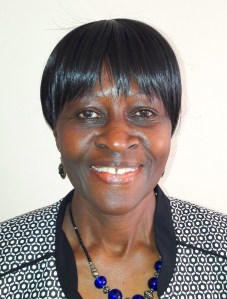Alexus Mcleod, Professor of Philosophy and Asian/Asian-American Studies at the University of Connecticut, is the new editor of The Philosophical Forum. Alexus’s research interests are in comparative and global philosophy broadly. His professional life has been dedicated to building bridges across philosophical traditions. In this interview, we ask Alexus about the value of a global approach to philosophy and what kinds of papers and issues he is interested in as editor. We’re thrilled that he will continue The Philosophical Forum’s distinctive legacy as a forum—a meeting place where ideas from across the globe are debated, exchanged, and enriched through open dialogue.
New Editor Interview
Your research interests cover a lot of ground—from the philosophies of early China and Mesoamerica to West African, classical Indian, and medieval Islamic thought. Is there a common thread linking your various interests? What are the benefits of taking a more global approach to philosophy?
There are many benefits of a global approach. Perhaps first among them is that we come to a better understanding of philosophy following this approach, because like language, literature, history, science, religion, and every other human intellectual pursuit, it is a global activity. While philosophy happens in some of the same patterns across the world and throughout history, no philosophical tradition is exactly the same, and in each we find unique insights, questions, and viewpoints on the world. Just as it would be fruitless to try to understand the nature of human language with an understanding of only one or two languages in a single region and ignoring all the rest (something I’ve sometimes seen!), or the nature of religion by looking only at Protestant Christianity, it’s hopeless to try to understand the nature of philosophy if we neglect the philosophy of most of the world.
This is not meant to be a broadside against “Western” traditions and those who study and work within them specifically. While particular Western modes of doing philosophy are dominant (often almost to the exclusion of everything else) in philosophy departments in the Anglo-American West, it would be just as objectionable to focus on, say, Chinese Philosophy to the exclusion of everything else, or Islamic Philosophy to the exclusion of everything else. There are of course cultural chauvinists in every tradition, even though due to the cultural and political residue of the European colonial projects that shaped the modern world, most philosophers outside the West know far more about Western Philosophy than Western philosophers tend to know about other global traditions. Because “philosophy” itself has been so thoroughly associated with and promoted as (by its practitioners and others) a particular kind of European-derived project, we most often see departments of philosophy across the world, even ones in which non-European traditions are the focus, taking Europe and Western Philosophy as a central core. I don’t think I’ve ever seen an academic philosophy department anywhere in the world that does not have at least some faculty members working on issues and areas connected to either contemporary Western traditions or historical scholarship of European and American Philosophy. I’ve seen many, on the other hand (especially at home in the USA) without a single faculty member working on anything connected to philosophical traditions outside of the “Western” world, either contemporary or historical.
We, philosophers in the Western academy, are simply not talking to the world for the most part, outside of the European and Anglo-American world. Particularly not the so-called “global south”. And we’re not talking to them even when they are engaged in the same projects! As I mentioned above, it turns out that many of the philosophers in China, India, Ghana, Peru, and elsewhere are working within the same philosophical tradition as many philosophers in the US and UK. There are analytic philosophers and Continental philosophers in the Western style throughout the world. It’s difficult to find any philosophy department anywhere without at least one person working in these areas. Still, there is little engagement between philosophers working in the English-speaking “West” and their counterparts in other parts of the world. And there is little good reason for this. Even our general category of this “West” hides a problem. Which nations do we include in the “English speaking world” for purposes of defining the West? USA, Canada, UK, Australia and New Zealand. Look the famous (or infamous?) Philosophical Gourmet Report. It ranks programs in the “English speaking world” in just these regions. But what of Caribbean nations? Various nations throughout Africa? India? English is the primary and native language of many Caribbean nations, for example, and the official and most common language of many African nations. Not so of Quebec. Yet the latter gets somehow included in “English speaking world,” while the former do not. And even in nations where English is not the official or most common language, language is still no barrier, as most people working on analytic philosophy outside the US can understand and work in English. It would be pretty tough, after all, to engage with a tradition whose major works one could not read due to not understanding the language in which they’re written.
I suspect that the reason for the lack of global interaction is the same as the reason for the general lack of focus on global philosophical traditions outside of the Western categories of analytic and Continental philosophy. Let me be frank here: racism. This is not largely (although it sometimes is) individual racism from philosophers, but rather the racism inherent in the conception of philosophy we’ve inherited. Just as institutional racism exists in the structures of American society, a cultural chauvinism grounded in racism exists in the conception of philosophy dominant in the West. Through practical inertia, we end up duplicating what we’ve been handed down by our chauvinistic and often racist intellectual forebears, even if we have no intention to be racist. At some point we’ve got to reckon with the fact that philosophy in the US (or that awkward “English speaking world” that has race built into it as well) is as it is because those who passed it down to us were racist, and engaged in an inherently racist project that explicitly excluded non-European people (and even particular categories of European people). We’re never going to improve philosophy until we come to grips with this racist past, understand the ways it clearly manifests itself in the present through our continuation of past patterns, and actively work to restructure the ways we think about what philosophy is and does.
To return to my own focus and the “common thread” linking my various projects—I think this common thread is simply my desire to talk to the world, to learn from the world, to understand at least some of the vast wealth of ideas that are falling largely on deaf ears in professional philosophy in the West. Philosophical insights and advancement, like all other kinds, are gained through broad interaction and discussion. Even though philosophers like to think of our field as making advancements through the contributions of individual geniuses creating brilliant new ideas from the armchair, this is a myth, and an insidious one at that. New ideas form through broad interaction with new people, situations, cultures, etc. This is just how the human mind works. Even the most powerful computer in the world can only do a single thing when the only program you’re running on it is a one line command in BASIC. We can only find new solutions, formulate new questions, and consider new ideas when we are exposed to a wide variety of people and things. It’s exciting to me to discover these new things (or things new to me at least!).
How do you see The Philosophical Forum fitting in to the wider philosophy community?
I hope to see The Philosophical Forum become a place for exploration of philosophical ideas unbounded by tradition, region, culture, or period of time. We are of course necessarily somewhat limited, in that we publish in English and thus miss out on philosophy as it’s done in other languages, but I also hope to include translation of work from other languages as well. I intend for The Philosophical Forum to be a true meeting place for philosophy as done in the broadest possible sense. The Forum will not be limited only to so-called analytic or Continental philosophy, but open to philosophy in all the ways is being done both at home and around the world.
The great challenge of our day in this field, I think, is to refine our conception of what the relevant philosophical questions are, as well as how to answer them, by looking to the variety of different philosophical discussions going on around the world and throughout history. While language is sometimes a limitation, it is less often so than we may think. An enormous amount of global philosophy has been translated into English, especially many of the important works from history. It’s also the case that much of the philosophy neglected in the West is being done in English, which is at least as much of a lingua franca in contemporary philosophy as it is in business. And there are numerous journals and series today dedicated to translating contemporary philosophical work from numerous languages into English. We live in a time particularly well-suited to the exploration of global philosophy, given the wealth of research available to us and the ease of communication across the world. With the resources and means for interaction at our fingertips, it is foolish not to make use of them. We can see that throughout history, periods of development, high culture, and the generation of new knowledge were always facilitated by the interaction between different people. The Islamic Golden Age, which gave us the innovations in science, mathematics, and medicine that made much of the modern world possible, resulted from the cross-fertilization of intellectual traditions throughout the area that came under the influence of early Islam, from Spain and North Africa through Persia and India. Philosophers and intellectuals in major centers such as Baghdad had access to a wide range of thought and traditions, combining the ideas of the ancient Greeks with those of Manicheanism, Syriac Christianity, Indian thought, and others. The Italian Renaissance was built through the development of both power and culture through eastern trade routes of the city-states of the peninsula, exposing people of these states to knowledge from throughout the Mediterranean and further east, which they could then synthesize in new ways. Flowering of new philosophical thought and new solutions to problems always accompanies the meeting of people, cultures, traditions. New ideas do not come from nowhere, created ex nihilo within an enclosed space. And new ways of thinking can only be generated by exposure to new environments.
The aim of The Philosophical Forum, since its beginning, has been to serve as a place for dialogue between numerous strands or traditions of the overarching philosophical project. In the past, this project was focused on bridging analytic and Continental philosophical traditions. In my leadership of the journal, I aim to move toward a more global approach. We will look to bridge the traditions of the West and those of the rest of the world. There is still far too little dialogue between various philosophical traditions around the world, and I hope to turn The Philosophical Forum into a meeting place, a forum for discussion, between all of these traditions, so we might learn from one another and develop something both new and shared by all of us. This, more than anything, is what I aim to achieve with The Philosophical Forum. A place for all of us, rather than one dominated by certain conceptions of philosophy, with the occasional inclusion of “outsiders.”
What criteria do you look for in a Philosophical Forum paper?
I look for papers that are doing something new, and something that doesn’t necessarily easily fit into other journals. Focus on quality is central, but too often the idea of quality gets conflated with style, subject matter, or particular views. I view quality in terms of creativity, strength of argumentation, and originality of contribution, not in terms of conforming to a particular style or tradition or a discussion of certain subject matter. Papers that push the boundaries, that aim to try something new, are more than welcome here. Papers that engage with philosophical traditions, ideas, or texts that may not be one’s own are welcome here. I aim for The Philosophical Forum to be a place of philosophical innovation, rather than a place to showcase one’s skills. I’ve long thought of the role of philosophy as a kind of “research and design” department of academia. Ideally, we have fewer constraints and more room to question and rework even the foundations of the intellectual project. Because of features of professionalization, though, we can sometimes become cautious and our creativity suffers. We have to show that our work contributes to some existing debate. That it supports or opposes some view on offer. That it adheres to the style and standards of a particular tradition. This kind of thing ensures that the gates to our particular philosophical projects remain close, and it tends to blunt creativity. The Philosophical Forum will not be a place where a paper will be looked at negatively for trying new things, or for branching off in new directions. On the contrary, that’s exactly the kind of thing I’m looking for. Still, any piece of quality philosophical work is welcome here. I don’t aim to expand the boundaries of philosophy by rejecting philosophical work as it has been done in the past. The more “traditional” article in contemporary analytic or Continental philosophy still has a place here too. Rather, the focus will be on innovation and contribution to a broader global philosophical discussion, to expanding the scope of what a generalist philosophy journal can do, so as to allow for a broader array of styles, traditions, and ideas. So the paper on analytic philosophy of language will sit alongside others on feminist epistemology, existentialism, philosophy of medicine, history of philosophy across the globe, indigenous philosophy, and on the variety of other topics that philosophers of all kinds both here in the US and across the world are interested in and working on.
What are your goals as editor over the next few years?
One aim, as mentioned above, is to make the journal international in scope, both in terms of contributors and in terms of subject matter. A forum should be a discussion place for everyone, and I will work hard to bring voices, topics, and traditions that tend to go neglected in the West into conversation, with one another and with the Western academy. I also aim to expand the kinds of topics and issues we think about as properly philosophical. There is such amazing philosophical work going on in areas such as anthropology, art history, religious studies, and so many other fields, and this work often flies under the radar of philosophers. The hope is that we can bring some of these people into the conversation at the Forum. I’m looking forward to further expanding the scope of these plans in the next few years—the sky is the limit, and my core commitment is to “stretching out,” to creating something truly new.
In your view, what are the most compelling issues and discussions in philosophy today?
There is so much interesting stuff going on in philosophy right now, but one of the things I’m particularly excited about is the way that traditions outside of the Anglo-American West are being engaged with by a younger generation of philosophers. I’m also encouraged to see more discussion of applied philosophy, often associated also with “public philosophy”—it feels to me like this move brings philosophy closer to what it traditionally was (in numerous cultures!) before the professionalisation of the modern university. Philosophy done for and with a wide range of people, not only members of the profession, and about the kinds of issues we deal with every day, things that can make a concrete difference in the ways we live our lives. The sorry state of our society (both at home and around the world), in which irrationality has become so prevalent that we’re no longer even sure how to tell the difference between seemingly obvious truths and falsehoods, or ignorance and knowledge, shows our desperate need of the aid of philosophical thinking, in the sense of critical thinkers like Socrates and Wang Chong. We have never needed philosophy more than we do today. And we have never needed a meeting of cultures more than we do today. Humans may not be able to solve the existential problems that we will have to reckon with this century. And if we don’t, we won’t survive. But if we can, it will only be through rational and critical thinking and through international cooperation, discussion, and exchange.
Visit The Philosophical Forum homepage for more information: https://onlinelibrary.wiley.com/journal/14679191









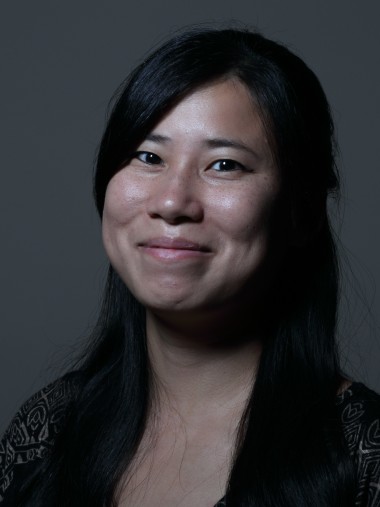
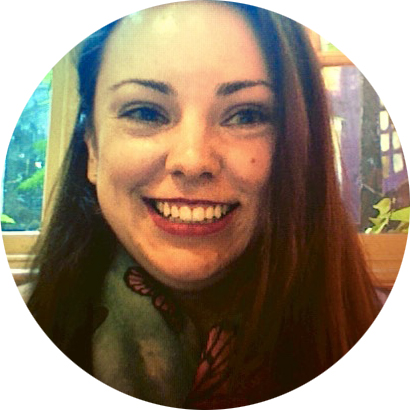
 It is 2017, and it seems that the whole world has descended upon Wittenberg. Luther tours, Luther conferences, small groups with every Lutheran affiliation imaginable, and individual tourists from all over the globe have been traveling to Wittenberg all year. They have been touring the important sites in Luther’s life, and learning about his theology there. It is 2017, and it seems that the whole world has descended upon Wittenberg—with perhaps one important exception, and that is the Lutheran World Federation.
It is 2017, and it seems that the whole world has descended upon Wittenberg. Luther tours, Luther conferences, small groups with every Lutheran affiliation imaginable, and individual tourists from all over the globe have been traveling to Wittenberg all year. They have been touring the important sites in Luther’s life, and learning about his theology there. It is 2017, and it seems that the whole world has descended upon Wittenberg—with perhaps one important exception, and that is the Lutheran World Federation.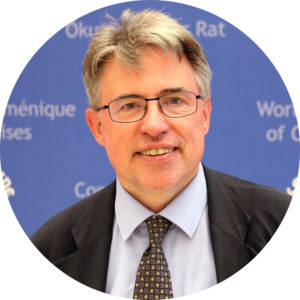 The year 2017 marks the 500th anniversary of Martin Luther’s promulgation of his 95 Theses. Commemorated worldwide as the beginning of the Reformation, this event was both the result of, and a catalyst for wider-ranging social, political, and religious developments. The waves from Wittenberg reached far beyond the borders of Germany, marking not only what became the Lutheran tradition but also the wider Christian community, including the Roman Catholic Church, whose identity was forged in this 16th-century confrontation.
The year 2017 marks the 500th anniversary of Martin Luther’s promulgation of his 95 Theses. Commemorated worldwide as the beginning of the Reformation, this event was both the result of, and a catalyst for wider-ranging social, political, and religious developments. The waves from Wittenberg reached far beyond the borders of Germany, marking not only what became the Lutheran tradition but also the wider Christian community, including the Roman Catholic Church, whose identity was forged in this 16th-century confrontation.





 All of us who work at universities know it: Diversity promotes creativity. The intellectual environments that contain people of different genders, origins, cultures, and educational backgrounds tend to be the most creative ones. New ideas emerge when different perspectives meet.
All of us who work at universities know it: Diversity promotes creativity. The intellectual environments that contain people of different genders, origins, cultures, and educational backgrounds tend to be the most creative ones. New ideas emerge when different perspectives meet.
 I’m a consequentialist, so forgive me if I don’t spend a great deal of time parsing the meaning of ‘ethics matters’. I shall leave that task to ‘real’ philosophers. Ethics uncontroversially matters if we take ‘matters’ to mean ‘be of consequence’. In case you doubt this claim, and you should not, let me give you just a few high-profile examples.
I’m a consequentialist, so forgive me if I don’t spend a great deal of time parsing the meaning of ‘ethics matters’. I shall leave that task to ‘real’ philosophers. Ethics uncontroversially matters if we take ‘matters’ to mean ‘be of consequence’. In case you doubt this claim, and you should not, let me give you just a few high-profile examples.

 In a fascinating
In a fascinating 






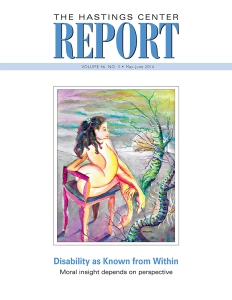













 The editors of the Journal of Applied Philosophy are pleased to announce that the winner of the 2015 essay prize is Cheshire Calhoun for her article, “
The editors of the Journal of Applied Philosophy are pleased to announce that the winner of the 2015 essay prize is Cheshire Calhoun for her article, “

